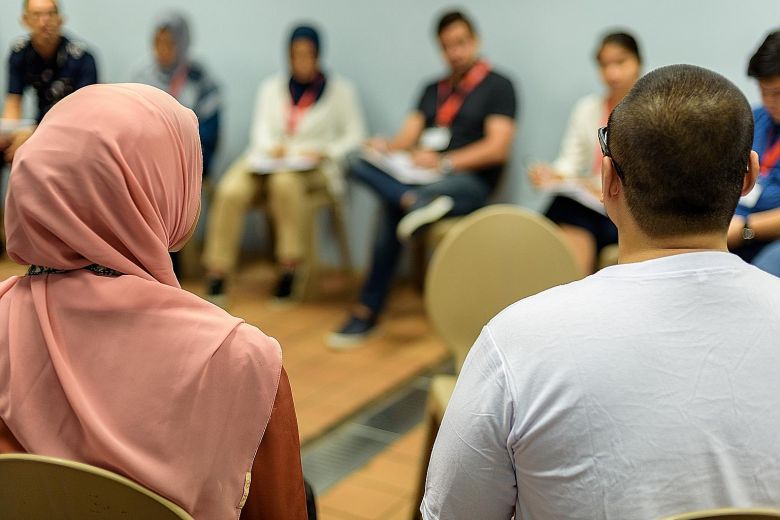More drug offenders sent to rehab centre


The number of drug offenders who were admitted to the Drug Rehabilitation Centre (DRC) increased by 65 per cent last year, following changes to the Misuse of Drugs Act.
Among other things, the changes allow for those who had reoffended for a third time or more to be sent to the DRC instead of long-term imprisonment.
As a result, the number of drug offenders who were admitted to long-term imprisonment dropped from 991 admissions in 2018 to 459 admissions last year.
Under the DRC regime, inmates go through psychology-based correctional programmes, skills training, as well as family support and religious services.
Latest figures released by the Singapore Prison Service (SPS) yesterday also showed that the two-year recidivism rate for prison inmates who were released in 2017 remained stable at 24 per cent.
The recidivism rate for inmates who were released in 2016 was 23.7 per cent, compared with 25.9 per cent for the 2015 cohort.
Separately, SPS said more offenders were placed on community corrections programmes last year - from 1,998 in 2018 to 2,415 last year.
Community corrections programmes allow offenders to be rehabilitated in the community while still being supervised. These programmes include the Day Reporting Order scheme, where offenders are free to go out but have to report back regularly to prison officers.
SPS said more employers also registered with the Singapore Corporation of Rehabilitative Enterprises (Score), which helps to identify job opportunities for offenders before they are released.
Last year, 5,603 employers were registered with Score, a 5.6 per cent increase from the previous year.
The proportion of inmates who were referred to Score and secured a job prior to their release remained stable at 96 per cent last year, compared with 96 per cent in 2018 and 97 per cent in 2017.
Even after their release, we continue to provide support to ease their transition back into the community, giving them a better chance of staying drug-free in the long run.
SUPERINTENDENT OF PRISONS LOH HONG WAI, commenting on the Drug Rehabilitation Centre programme. It aims to help inmates deal with the psychological and emotional aspects of their drug abuse, and to equip them with the knowledge and skills to prevent relapse.
Commenting on the DRC programme, Superintendent of Prisons Loh Hong Wai said the aim is to help inmates deal with the psychological and emotional aspects of their drug abuse, and to equip them with the knowledge and skills to prevent relapse. "Even after their release, we continue to provide support to ease their transition back into the community, giving them a better chance of staying drug-free in the long run," he added.
DRC inmate Rahman (not his real name) has been in and out of prison for more than six years for drug abuse. The 32-year-old spent a year in DRC after his first conviction in 2013 for abusing heroin, and again in 2015 for taking methamphetamine, also known as Ice.
Last year, he was convicted of abusing heroin and returned to DRC. This time, he said he is determined to stay off drugs for good, with the help of rehabilitation programmes that have taught him how to cope with his emotions better.
He is one of 2,080 inmates who were admitted to DRC last year. In 2018, 1,257 drug offenders were admitted to the regime.
Speaking to the media on Thursday in an interview facilitated by the SPS, Rahman said he is grateful that he has learnt how to manage his emotions better. He hopes he will be able to find a stable job after his discharge later this year.
"My parents won't be around forever. They deserve a chance to see me change for the better," he said.
 Pathways Drug Rehabilitation Luxury Addiction Treatment & Detox Center
Pathways Drug Rehabilitation Luxury Addiction Treatment & Detox Center


